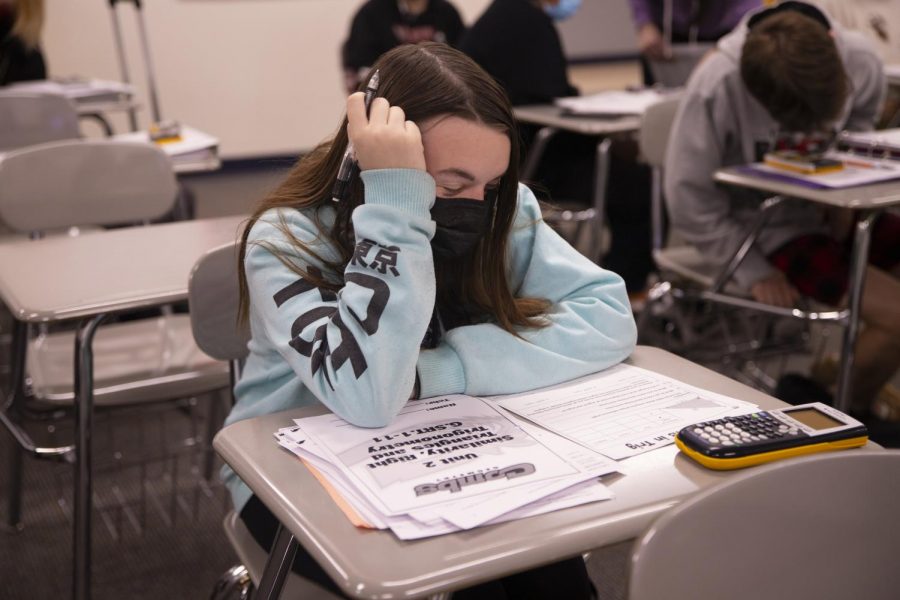Depression and Anxiety Kick Up in Teens
May 6, 2021
Your alarm goes off at 5:30 a.m as another school day rolls around. You turn off your alarm and look over the notifications that came overnight. The time slowly ticks by as you struggle to get out of bed while drifting back to sleep. You have no energy and no motivation to get up that day, but you choose to get up anyways and get to the bus. As the bus pulls up to the school you’re asleep in your seat and wake up as it comes to a stop. You drag yourself throughout the day not paying attention in class because your thoughts are distracting you. Your anxiety then battles you worrying that no work will be done as you slowly slip away.
Counselor Jolene Petersen has seen a big increase of mental health diagnoses and can relate to how the students are feeling.
“They develop these new struggles that are hard to deal with, I would tell them to quote ‘winnie the pooh’ actually. You are stronger than you believe, you really are,” Petersen said, “They feel like their feet have been knocked out from underneath them. Sometimes life throws that curveball and you’re not ready for it.”
The effect of anxiety and depression has started to get to students as everything continues to change with school, family life or Covid-19. Especially students who are properly diagnosed.
“I was diagnosed with depression and anxiety, among a couple other things, 1 or 2 years ago if I remember correctly but I’ve known I’ve had them for longer than that,” Sophomore Jace Domarad said, “I’m much more tired than I used to be, even compared to a few years ago.”
Some people are being put at ease online with interacting with people in person and online take a little pressure off them.
“My anxiety has gone up only during the times where I have to present things and actually communicate with my peers. It is easier interacting with people online, but it still makes me anxious,” Junior Aliyah Contreras said.
When Spring break hit and everyone was put into ‘lockdown’ everyone was affected in different ways.
“In the beginning of all this during spring break, I kind of put myself into personal isolation especially from my friends and family,” Sophomore Christopher D’Angelo said, “It wasn’t until school started again then I started talking to people. It caused my depression to go way down. All the isolation was difficult to come out of.”
Everyone has their own coping mechanisms that make them happy.
“Find whatever it is that soothes your soul, then do it. I would also advise students to get outside of themselves,” Peterson said, “One thing I get frustrated with is when students start to wallow in their own pity and sadness. They get down there and feel comfortable and it’s not healthy, they can’t get out of it.”



